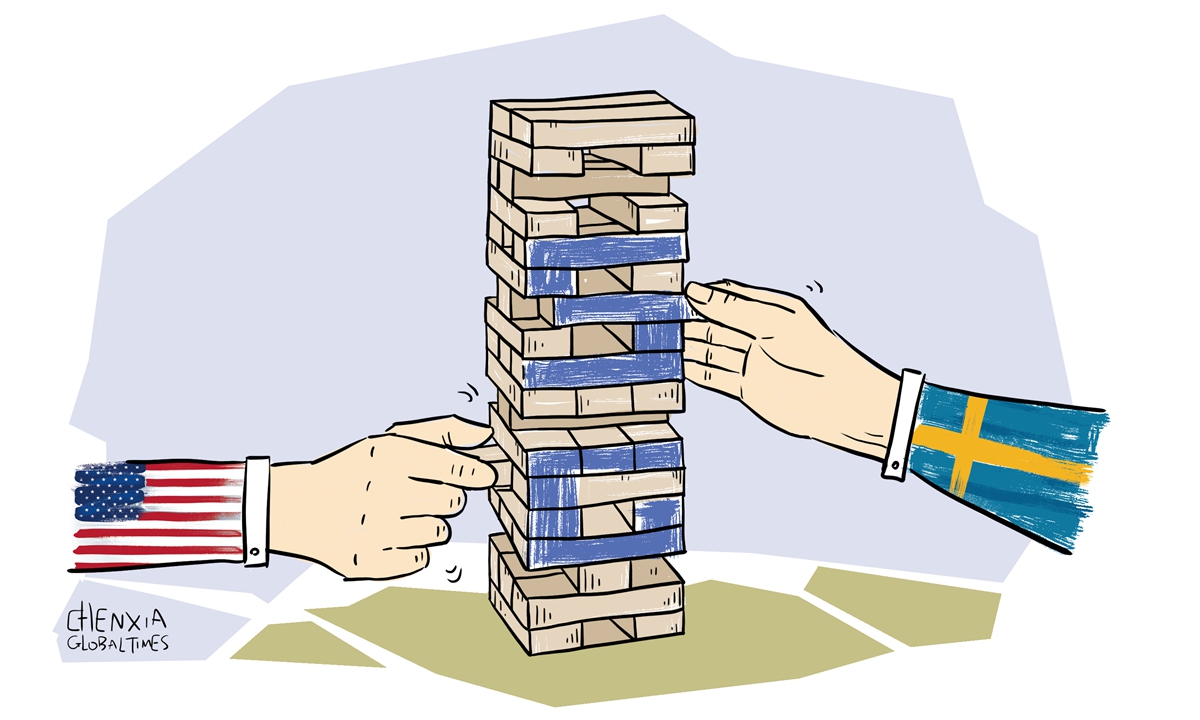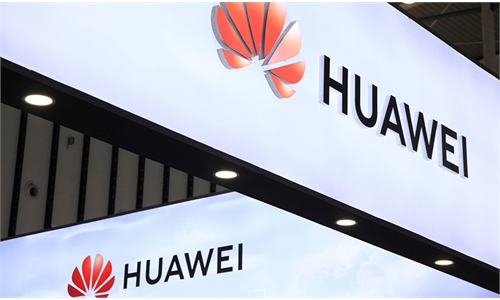COMMENTS / EXPERT ASSESSMENT
Sweden should stop bullying Chinese tech with ‘security’ guise

Illustration: Chen Xia/GT
Swedish authorities have announced restrictions on Chinese 5G developers from joining the country's 5G network construction, under the unproven but catch-all guise of "national security" concerns. Such a move, siding with the US' anti-China campaign, will inevitably lead to damage to its economic and trade relations with China and put Swedish firms' businesses in China at risk.The Swedish Post and Telecom Authority (PTS) said ahead of the upcoming spectrum auctions scheduled for November 10 that "new installations and new implementation of central functions for the radio use in the frequency bands must not be carried out with products from [Chinese] suppliers Huawei or ZTE."
It added that previously installed products from the two Chinese firms for certain functions must be phased out before 2025.
As home to Ericsson, one of the top 5G developers in the world, Sweden is a country leading 5G-related work. However, instead of safeguarding an amicable development environment for the new generation of networks, the nation aims to squeeze Chinese firms out based on groundless assumptions, even though Huawei has offered to sign "no backdoor" agreements to relieve these so-called concerns.
Led by the US, Western countries have been politicizing economic and trade issues, and practicing discriminatory and exclusive policies in the name of national security - a "basket" that contains every anti-China issue, rather than an actual security issue.
Chinese Foreign Ministry spokesperson Zhao Lijian slammed the decision, saying at a regular press conference that by openly slandering and oppressing Chinese telecom companies without evidence, Sweden violated the principles of the free, open, fair, just and non-discriminatory market economy that the nation pursues, and it should correct its mistake and avoid a negative impact on China-Sweden economic cooperation and Swedish businesses operating in China.
The two countries enjoy economic complementarities, and Sweden's trade with China has consistently increased during the past couple of years. According to the official website of the Swedish embassies and consulates, China is Sweden's largest trading partner in Asia.
Though the two nations have been enhancing ties in the economic and trade sectors, it is obvious that trade with Sweden accounts only for a small proportion of China's foreign trade. Per data from China's General Administration of Customs, bilateral trade stood at 93.3 billion yuan ($14 billion) in the first three quarters, accounting for only about 0.4 percent of China's total trade in the period.
Apart from the approximately 10,000 Swedish companies that trade with China, more than 600 Swedish companies have established a presence in the country, read the Swedish website. Famous Swedish companies operating in China include Ericsson and IKEA. Ericsson has established 5G cooperation with major Chinese telecom carriers, such as China Unicom, China Mobile and China Telecom.
Facing Sweden's bullying of Chinese firms, it is impossible for Chinese authorities to avoid responding. Even without countermeasures targeting Swedish companies, the North European country's reckless move has cast a shadow on its economic relationship with China, as well as investor confidences.
The world has officially entered the 5G era. Trying to block industrial frontrunners will definitely delay Sweden's 5G development and bring huge costs for the country.
With countries and companies rushing into the new technological arena, open and win-win cooperation is the ideal approach. For instance, benign cooperation or competition among developers could speed up technology innovation, while an open market could reduce costs for telecom carriers and consumers.
Choosing to politicize economic and undermine market principles is unwise, and will hinder global scientific and technological progress.
The author is a veteran analyst of technology industries. bizopinion@globaltimes.com.cn



